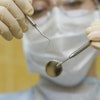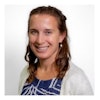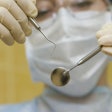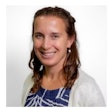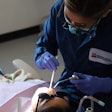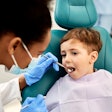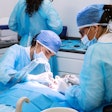
Is California gearing up to be the next state to consider midlevel providers? Lawmakers are considering a bill that would allow the state to study the benefits of alternative dental care providers.
The California Dental Association (CDA) supports the proposed legislation, but two other state dental groups, the California Academy of General Dentistry (CAGD) and the California Association of Oral and Maxillofacial Surgeons (CALAOMS), oppose the concept of midlevel providers, saying they lack the necessary training to do irreversible procedures.
SB 694, introduced by state Sen. Alex Padilla (D-San Fernando Valley), would also establish a state dental director who could help California secure federal funds for subsidized dental programs.
As originally written, the bill would have allowed the dental director to "design and implement a scientifically rigorous study to assess the safety, quality, cost-effectiveness, and patient satisfaction of irreversible dental procedures performed by traditional and nontraditional providers for the purpose of informing future decisions about scope of practice changes in the dental workforce that include irreversible or surgical procedures."
But with a January 31 deadline looming, opponents stepped up pressure and the bill was amended to remove references to "irreversible procedures," "workforce," and "scope of practice changes."
Sen. Padilla said the bill aims to address the growing number of the state's children who have no access to dental care, as well as the huge increase in the number of children who will be covered by dental insurance in the next few years under the healthcare reform law.
"Thousands of California children cannot access dental care due to a lack of dentists in their communities. SB 694 would create a state office of oral health with a state dental director and would authorize a study to find ways to improve access to oral healthcare for all children and their families," he stated in an email to DrBicuspid.com. "With 1.2 million additional children in the state expected to gain dental insurance in 2014, it is crucial that this expanded coverage actually results in improved access to care."
Pros and cons
So far more than a dozen organizations -- including the CDA -- have lined up in support of the measure.
"The CDA is committed to a comprehensive approach to reducing the barriers to dental care in California while maintaining patient safety as a top priority," according to an email the group sent to DrBicuspid.com. "SB 694 also calls for a scientific study to assess the safety, quality, and cost-effectiveness of allowing basic preventive and restorative dental procedures to be performed by providers other than dentists because such evidence has not been established through qualified research. Until such compelling data exists, CDA is opposed to any changes in scopes of practice. The CDA supports SB 694 because this study is the appropriate next step in building the necessary evidence base for any new provider or scope of practice considerations in California."
But Myron "Mike" Bromberg, DDS, chairman of the CAGD's Legislative and Governmental Affairs Council and a delegate to the CDA, said the concept of creating dental therapists was not included when the CDA initially discussed the bill.
“The CDA is committed to a comprehensive approach to reducing the barriers to dental care in California.”
— California Dental Association
"I feel the spirit of the resolution has not been fulfilled," Dr. Bromberg told DrBicuspid.com. "That certainly was not my intention when I voted."
Dr. Bromberg was concerned that even studying the concept of dental therapists would eventually open the door to allowing them to do irreversible procedures such as restorations, extractions, and pulpotomies.
"I have great concerns about that because it's the first step to a dental therapist," he explained. "The study, depending on how it's designed, could ultimately show they're fine, and the next thing you know we'll have dental therapists."
Dr. Bromberg asserted that midlevel providers with only two years of education after high school are simply not trained enough to do complicated procedures, particularly on children, many of whom have compromised issues to begin with. "These are highly technical procedures, and you need to have a really fine education to do them," he explained. "It is dangerous to experiment like this on the public."
CALAOMS President W. Frederick Stephens, DDS, concurred.
"I am opposed to a study of MLPs [midlevel providers] doing irreversible or surgical procedures," he told DrBicuspid.com. "Extractions are not in the safe purview of someone with minimal training. And many restorations, depending on the type and complexity, also are out of the purview of inexperienced or minimally trained providers, especially relating to the care of children, which is certainly our most difficult patient care group."
Dr. Bromberg agreed, noting that underserved children often have other health problems.
He eschewed the positive evaluations given to Alaskan dental health aide therapists (DHATs), who have been providing preventive and restorative procedures and dental extractions to residents of isolated towns since 2009.
"The Alaska situation is entirely different because you have people who live 1,000 miles away from a dentist office," Dr. Bromberg said, "and it hasn't been around long enough to do a real, in-depth, comprehensive study."
National opposition
The ADA, together with most state dental associations, has voiced adamant opposition to midlevel providers, saying they lack the necessary training to do irreversible or surgical procedures.
Last fall, the ADA successfully marshaled its members to lobby against a healthcare appropriations measure that included funding for the "alternative dental healthcare provider demonstration projects" that were created as part of the U.S. healthcare reform law. Congress subsequently rejected funds for midlevel provider projects.
In 2009, Minnesota became the first state to pass legislation allowing the licensing of midlevel oral health providers.
Currently, several states Legislatures, including Missouri and Kansas, are considering similar laws.
Since the W.K. Kellogg Foundation announced its $16 million dental therapist project in 2010, grassroots coalitions have been pushing forward with efforts to develop midlevel provider programs in five U.S. states.
There are many alternatives to midlevel providers, Dr. Bromberg said, including creating mobile dental units, educating underserved populations about preventive care, and increasing reimbursements to Medicaid.
"Why put money into a program with questionable results when we already know what works?" he said, citing studies showing that dentists are much more willing to treat Medicaid patients when reimbursements are closer to the treatment costs. Additionally, expanded function dental auxiliaries working under supervision by a dentist could go a long way in resolving the access issue, Dr. Bromberg noted.
Senior dental students also represent an untapped resource for providing dental care to the underserved, he added.
